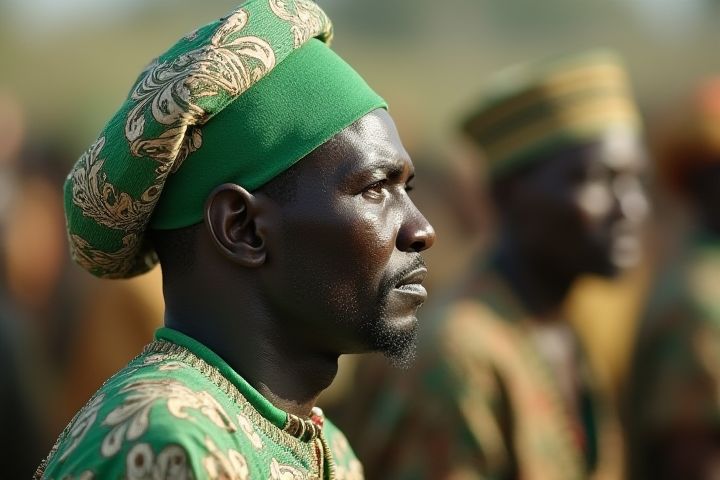
Nigeria is often classified as a developing country, which aligns it with the characteristics typically associated with third-world countries. This classification stems from various social, economic, and political factors, including limited access to education, healthcare, and infrastructure. Despite being one of Africa's largest economies, Nigeria grapples with significant poverty rates and high unemployment. The country's rich natural resources, particularly in oil, are juxtaposed against widespread corruption and governance issues, which hinder its development. Understanding these dynamics is essential for comprehensively evaluating Nigeria's status on the global stage.
Developing country status
Nigeria is classified as a developing country, reflecting its lower socioeconomic indicators compared to more industrialized nations. The term "third world" is often considered outdated, as it implies a binary classification that doesn't capture the complexities of current global economies. As Africa's largest economy, Nigeria faces challenges including high poverty rates, inadequate infrastructure, and limited access to education, all of which hinder its development. Despite these obstacles, Nigeria's rich resources and youthful population present substantial potential for growth and advancement on the global stage.
Emerging economy
Nigeria is classified as an emerging economy, reflecting its significant growth potential despite facing challenges such as poverty and infrastructure deficits. It is the largest economy in Africa, driven by sectors like oil and gas, agriculture, and telecommunications. The country's youthful population and increasing urbanization provide a robust labor force and expanding consumer market. As Nigeria continues to implement reforms and attract foreign investment, its trajectory suggests a promising future in the global economic landscape.
Economic diversity
Nigeria is often classified as a developing country, reflective of its economic diversity and growth potential. The nation's economy predominantly relies on oil exports, but there has been a significant push towards diversifying into agriculture, telecommunications, and services. This economic diversification aims to reduce vulnerability to oil price fluctuations and enhance sustainable development. You can observe that regions within Nigeria, such as Lagos, have showcased rapid urbanization and entrepreneurial growth, highlighting the nation's evolving economic landscape.
GDP growth rates
Nigeria is classified as a developing country, often referred to as a "third world" nation, primarily due to its economic indicators, including a fluctuating GDP growth rate. Despite experiencing periods of significant economic growth, particularly driven by oil exports, Nigeria faces challenges such as political instability, infrastructure deficits, and poverty, which hinder sustainable development. In recent years, GDP growth has shown signs of recovery, with projections indicating potential improvements, but issues like inflation and unemployment remain pressing concerns. Your understanding of Nigeria's economic landscape is crucial, especially as it seeks to diversify its economy beyond oil reliance and enhance overall living standards.
Infrastructure challenges
Nigeria is often classified as a developing or "third world" country, primarily due to its significant infrastructure challenges. The nation faces issues such as inadequate road networks, inconsistent electricity supply, and limited access to clean water, which hinder economic growth and quality of life. Urban areas, particularly Lagos, experience severe traffic congestion and insufficient public transport systems, straining daily commutes and business operations. Addressing these infrastructure deficiencies is crucial for Nigeria's sustainable development and attracting foreign investment.
High population
Nigeria is often categorized as a developing or third world country, despite being the most populous nation in Africa, with over 200 million residents. This high population density impacts various aspects of life, including infrastructure, healthcare, and education, contributing to challenges such as poverty and unemployment. Rapid urbanization in cities like Lagos exacerbates these issues, leading to overcrowding and inadequate public services. You may find that the high population presents both challenges and opportunities for economic growth, innovation, and cultural diversity within Nigeria.
Poverty rate
Nigeria is often classified as a developing country, reflecting its status in the global economic hierarchy. With a poverty rate exceeding 40%, millions of Nigerians live on less than $1.90 a day, highlighting significant economic challenges. Factors contributing to this poverty include inadequate infrastructure, limited access to education, and high unemployment rates, which perpetuate the cycle of poverty. Addressing these issues is critical for improving the overall quality of life and fostering economic growth in the nation.
Political instability
Nigeria is often classified as a developing nation, or a "third world" country, largely due to its persistent political instability. This instability is characterized by frequent changes in government, corruption, and inadequate governance, which hinder economic growth and social development. Ethnic and religious tensions further exacerbate the political landscape, leading to violence and civil unrest. As a result, Nigeria faces significant challenges in achieving stability necessary for sustainable development and attracting foreign investment.
Health care issues
Nigeria is categorized as a developing country, often classified within the "third world" framework, primarily due to its healthcare challenges. The nation grapples with inadequate medical infrastructure, limited access to essential health services, and a high prevalence of infectious diseases. High maternal and infant mortality rates highlight severe gaps in healthcare delivery, while underfunded public health systems struggle to meet the needs of a growing population. For your understanding, initiatives aimed at improving healthcare access and reforming policies are crucial in addressing these systemic issues.
Education access
Nigeria is often classified as a developing country, facing significant challenges in education access. A large percentage of its population, particularly in rural areas, lacks basic educational resources and infrastructure, contributing to high rates of illiteracy. Furthermore, socioeconomic factors such as poverty and cultural norms hinder many children, especially girls, from attending school. Enhancing education access in Nigeria is crucial for fostering economic growth and social development, making it essential to address these pervasive barriers.
